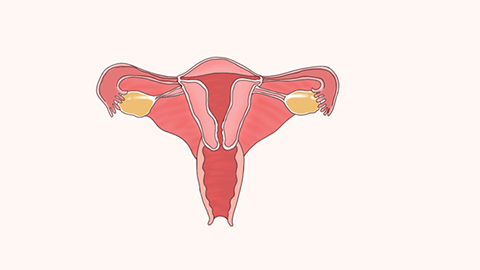What causes a thickened endometrium?
Generally, thickened endometrium may be caused by factors such as perimenopausal hormonal fluctuations, prolonged unopposed estrogen stimulation, endometritis, polycystic ovary syndrome (PCOS), and endometrial polyps. It is recommended to seek timely medical consultation to identify the underlying cause and improve the condition under a doctor's guidance through general treatment, medication, or surgical interventions. A detailed explanation is as follows:

1. Perimenopausal Hormonal Fluctuations: As women enter the perimenopausal period, ovarian function declines and the secretion of estrogen and progesterone becomes imbalanced. Continuous estrogenic stimulation acts on the endometrium, causing thickening. Maintaining a regular sleep schedule, avoiding late nights and excessive fatigue, reducing mental stress, appropriately increasing soy products in the diet, and undergoing regular gynecological ultrasound examinations can help regulate hormone levels and monitor endometrial changes.
2. Prolonged Unopposed Estrogen Stimulation: Without progesterone supplementation, prolonged estrogenic stimulation leads to continuous proliferation and thickening of the endometrium. Progesterone should be supplemented under a doctor's guidance using medications such as progesterone capsules, dydrogesterone tablets, or medroxyprogesterone acetate tablets. These medications help regulate the endometrial cycle, promote regular endometrial shedding, and prevent excessive thickening.
3. Endometritis: Infection of the endometrium by bacteria causes inflammation, which leads to congestion and edema of the endometrium, resulting in apparent thickening. This is often accompanied by lower abdominal pain and abnormal vaginal discharge. Follow medical advice to use antibiotics such as cefixime dispersible tablets, metronidazole tablets, or doxycycline hydrochloride tablets to control the infection.
4. Polycystic Ovary Syndrome (PCOS): Ovarian dysfunction leads to excessive androgen secretion, which is converted into estrogen and continuously stimulates the endometrium. At the same time, insufficient progesterone secretion causes endometrial thickening, often accompanied by symptoms such as oligomenorrhea and hirsutism. Patients should follow medical advice to use medications such as ethinylestradiol cyproterone tablets, drospirenone ethinylestradiol tablets, or spironolactone tablets to regulate endocrine function.
5. Endometrial Polyps: Localized overgrowth of endometrial tissue forms polyps, leading to overall endometrial thickening, often accompanied by abnormal bleeding. Small polyps can be monitored regularly, while larger or symptomatic polyps require removal via hysteroscopic endometrial polypectomy to restore normal endometrial thickness.
In daily life, maintaining a positive mood and avoiding anxiety are important. Reducing intake of high-sugar and high-fat foods, engaging in appropriate physical activity to maintain a healthy weight, and undergoing regular gynecological examinations to monitor endometrial status can help maintain uterine health.





